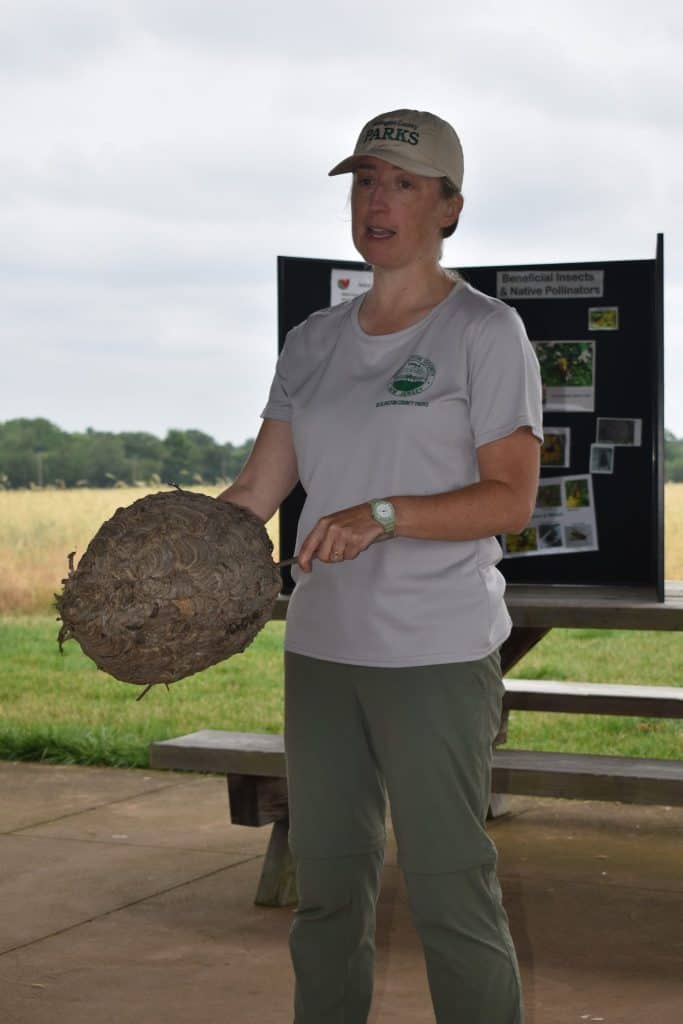

Naturalist Jennifer Burava displays an abandoned hornet’s nest during her presentation, held in conjunction with National Pollinators Week. At right, a bee pollinates a lavender plant and collects pollen and nectar in the park.
Without pollination, ‘plants can’t reproduce,’ says county expert
With wind blowing across the vast fields of native plants and grass at Rainbow Meadow Park in Delran, naturalist Jennifer Bulava encouraged residents to grow gardens friendly to bees and insects.
“Without pollination, plants can’t reproduce,” said Bulava, lead park naturalist for Burlington County, as she spoke on June 15. “We would be completely lost and the global food supply would be degraded. Pollinators are keystone species that support the rest of the ecosystem.”
Citing a recent United Nations report, Bulava noted that of the top 100 food crops worldwide, 71 of them are pollinated by bees. She is concerned that pollinators are declining worldwide and in South Jersey, and 40% of them face extinction.
“We can’t ignore pollinators like bees and insects, because they are doing such an important job,” Bulava explained. “We are celebrating the little things that run the world.”
She hosted the presentation to local gardeners during National Pollinators Week with entomology student Carolyn Almonte. They encouraged people to grow native plants in their yards without chemical pesticides and to create a little habitat friendly to pollinators, instead of manicured lawns with foreign plants such as geraniums, tulips and daffodils.
“Wild bees pollinate plants that produce fruits, vegetables and nuts. They are solitary, and live one in a hole in the ground or a stem,” noted Bulava, who encouraged her audience to learn about native bees and the right kind of plants to grow.
“Pollinators are attracted by certain shapes, colors and scents,” she said, adding that the pollen collected by the bees is full of fats, minerals and vitamins that nurture young bees and the queen bee so she can produce eggs. Almonte pointed out that bees have a special divot in their thighs known as a pollen basket.
“They squeeze the pollen into the basket and bring it back to the hive,” she said. “It turns into bee bread for the babies. The nectar turns into honey for the adult bees.”
Bulava said the six keystone plants in South Jersey to attract honey bees, bumble bees and wild bees are sunflowers, goldenrods, oak trees, willow trees, asters and wild cherry trees.
She recommended a variety of flowering plants in the garden, including annuals and perennials, and fruits and vegetables that bloom from spring through the fall. Flowers that are yellow, blue, pink and purple attract the most bees.
After the presentation, Bulava and Almonte led the group in a walk around the edges of Rainbow Meadow – a huge area full of lavender and native flowers and grasses – to look for butterflies, bees and hummingbirds, the only non-insect pollinator in the area.
For more information, visit www.pollinator.org or download a wild be app.










